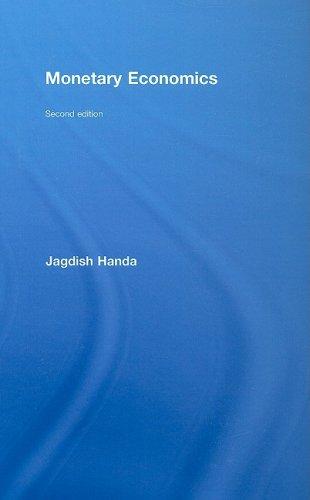Because monetary shocks have a delayed and gradual impact on inflation, in essence we experience a credible
Question:
“Because monetary shocks have a delayed and gradual impact on inflation, in essence we experience a credible announced disinflation every time we get a contractionary shock.
Yet we don’t get the boom that the (new Keynesian) model says should accompany it.
This means that something is fundamentally wrong with this model.” Discuss the validity of the preceding observation. In particular, is this observation valid for contractions in monetary policy that were unanticipated when the policy was first announced? What does the new Keynesian model imply on this issue? If it is fundamentally wrong, how might the new Keynesian model be modified to fit the facts?
Fantastic news! We've Found the answer you've been seeking!
Step by Step Answer:
Related Book For 

Question Posted:






